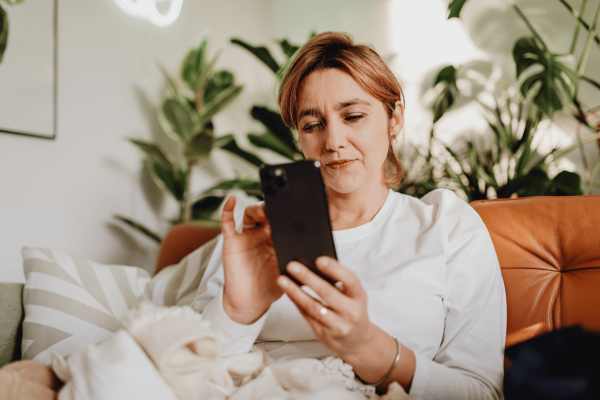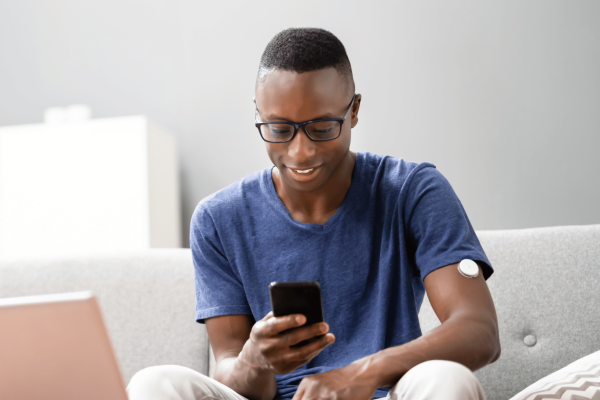The Challenge of Device Provisioning in Clinical Trials
In clinical trials, gathering timely and accurate data from patients is essential for assessing the efficacy and safety of treatments. However, traditional methods of electronic data collection like electronic patient-reported outcomes (ePRO), can pose challenges when trying to ensure that patients are entering their data correctly. This leads many researchers to strategies involving provisioned devices as they seek to impose as much uniformity as possible on the data collection process, all in the hopes of avoiding errors and other problems.
Provisioning, however, comes with its own set of challenges. These include the high costs of purchasing and managing hardware, logistical issues related to distributing devices to participants, and the complexities of ensuring data security across various devices.
Enter the Bring Your Own Device (BYOD) model—an approach that allows participants to use their own smartphones or tablets for ePRO data collection. It makes obvious sense – a recent look at smartphone usage showed that approximately 69% of the global population uses smartphones.
While BYOD is hardly a new idea, many research teams still struggle to effectively oversee large trials where patients are using their own devices. TrialKit’s native mobile application is ideally suited for BYOD study designs, allowing researchers to mitigate the challenges of device provisioning while enhancing patient engagement and data accuracy.
What is BYOD in Clinical Trials?
In the context of ePRO and eCOA (electronic clinical outcome assessments), BYOD enables patients to interact with trial protocols and submit responses directly from their smartphones or tablets.
Pain Point: Device Provisioning
Traditionally, clinical trial sponsors have relied on provisioning dedicated hardware to patients. While this ensures a standardized environment for data collection, it comes with significant drawbacks:
- High Costs: The financial burden of purchasing, configuring, and distributing devices can be substantial, particularly for large-scale studies. Maintenance and technical support add to the overall expenses.
- Logistical Complexity: Managing the distribution and retrieval of devices across diverse geographic locations is a logistical challenge. This complexity is further amplified in global trials, where shipping costs and customs regulations can cause delays.
- Patient Inconvenience: Participants often find it cumbersome to carry an additional device solely for the study. This can lead to lower compliance rates and incomplete data, ultimately affecting the trial’s outcomes.
- Security Concerns: Ensuring data security and compliance with regulations like GDPR and HIPAA is crucial. Provisioning multiple devices increases the risk of data breaches if devices are lost or stolen.
How TrialKit Supports BYOD for ePRO and eCOA
TrialKit’s BYOD-friendly eCOA/ePRO solution makes it simple and straightforward for patients and/or caregivers to enter data, regardless of the type and operating system (OS) of their personal smart device. Here’s how TrialKit eliminates the pain points associated with traditional device provisioning:
- Cost-Effectiveness: By allowing patients to use their own smartphones or tablets, TrialKit eliminates the need for sponsors to invest in additional hardware.
- Ease of Use for Patients: TrialKit’s native-mobile application is designed with user-friendliness in mind, making it easy for patients to navigate and complete assessments on their devices. This familiarity with their own devices leads to higher compliance rates and more accurate data capture.
- Enhanced Data Security: TrialKit employs robust encryption and secure data transmission protocols to ensure that patient data is protected. Compliance with regulatory standards such as HIPAA and GDPR is built into the platform, safeguarding patient privacy and data integrity.
- Streamlined “Logistics”: The BYOD model eliminates the shipping and receiving headaches common with provisioning. Patients simply download the TrialKit app and begin contributing data immediately, regardless of their location.
- Real-Time Data Capture: TrialKit facilitates real-time data capture, allowing researchers to monitor patient responses as they are submitted. This immediate access to data can improve study oversight, enable timely interventions if necessary, and enhance the overall quality of the trial data.
The Patient Experience and BYOD
Patient engagement is a critical factor in the success of clinical trials. With BYOD, patients are empowered to participate in studies more seamlessly. Here’s how:
- Convenience: Patients can complete assessments on their own devices at their convenience, whether at home, work, or on-the-go. This flexibility reduces the burden on patients and fosters better adherence to study protocols.
- Reduced Learning Curve: Since patients use their own smartphones or tablets, there is no need for training on a new device. They are already familiar with the interface, reducing the learning curve and minimizing user errors.
- Increased Engagement: Patients are already comfortable with their devices, allowing the study app to integrate seamlessly into their daily lives.
Addressing Concerns with BYOD
While BYOD offers numerous advantages, there are valid concerns regarding the variability of devices and operating systems among patients. TrialKit addresses these concerns by:
- Ensuring Compatibility: The TrialKit app is designed to be compatible with a wide range of iOS and Android devices, ensuring that the vast majority of participants can use their own smartphones or tablets without technical issues.
- Maintaining Data Quality: TrialKit includes features to ensure data quality across different devices, such as consistent question formatting and automated error checking.
Conclusion
TrialKit’s BYOD model reduces costs, eliminates logistics problems, enhances patient convenience, and ensures data security. As data collection and management strategies continue to evolve, adopting a BYOD approach can lead to more efficient and patient-centric studies. By leveraging patients’ own devices, sponsors can facilitate smoother trials, enhance data accuracy, and ultimately bring treatments to market more efficiently.
Contact us today to speak with one of our product experts about using BYOD in your upcoming studies.




